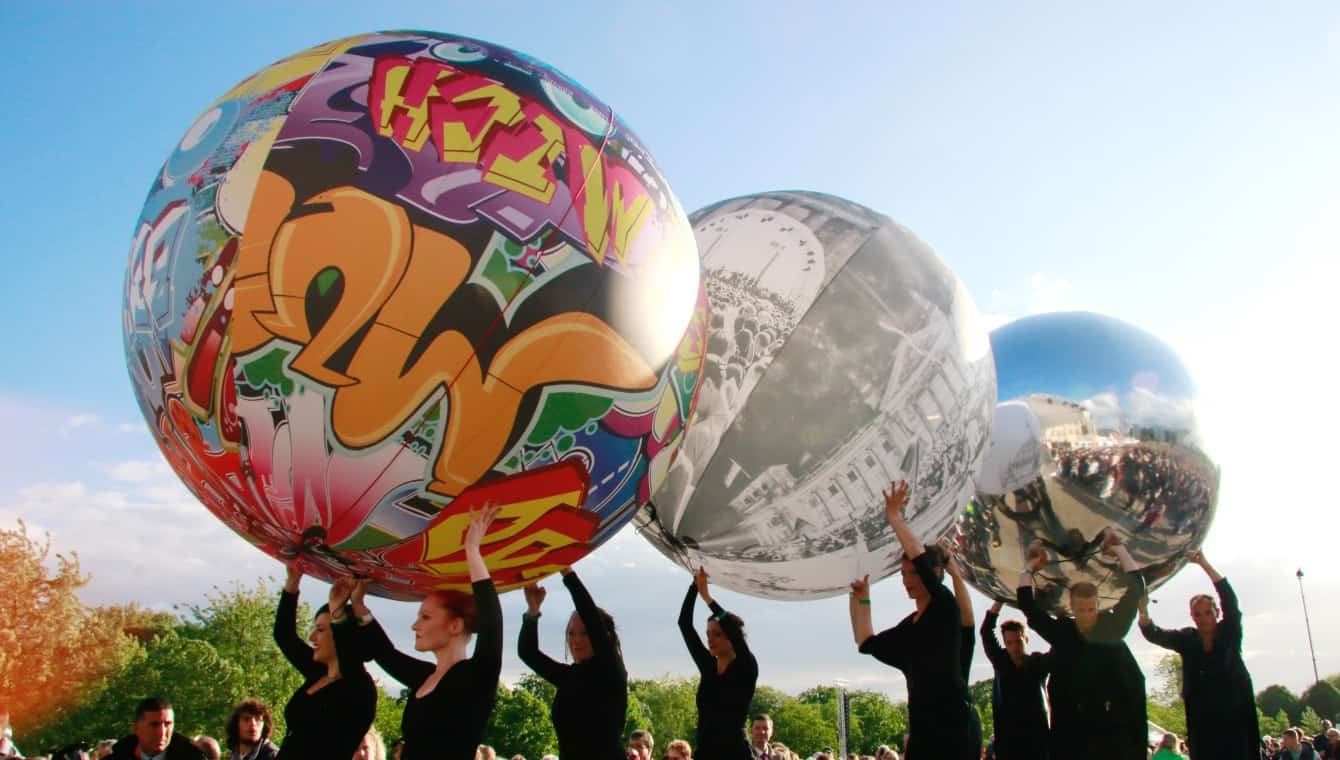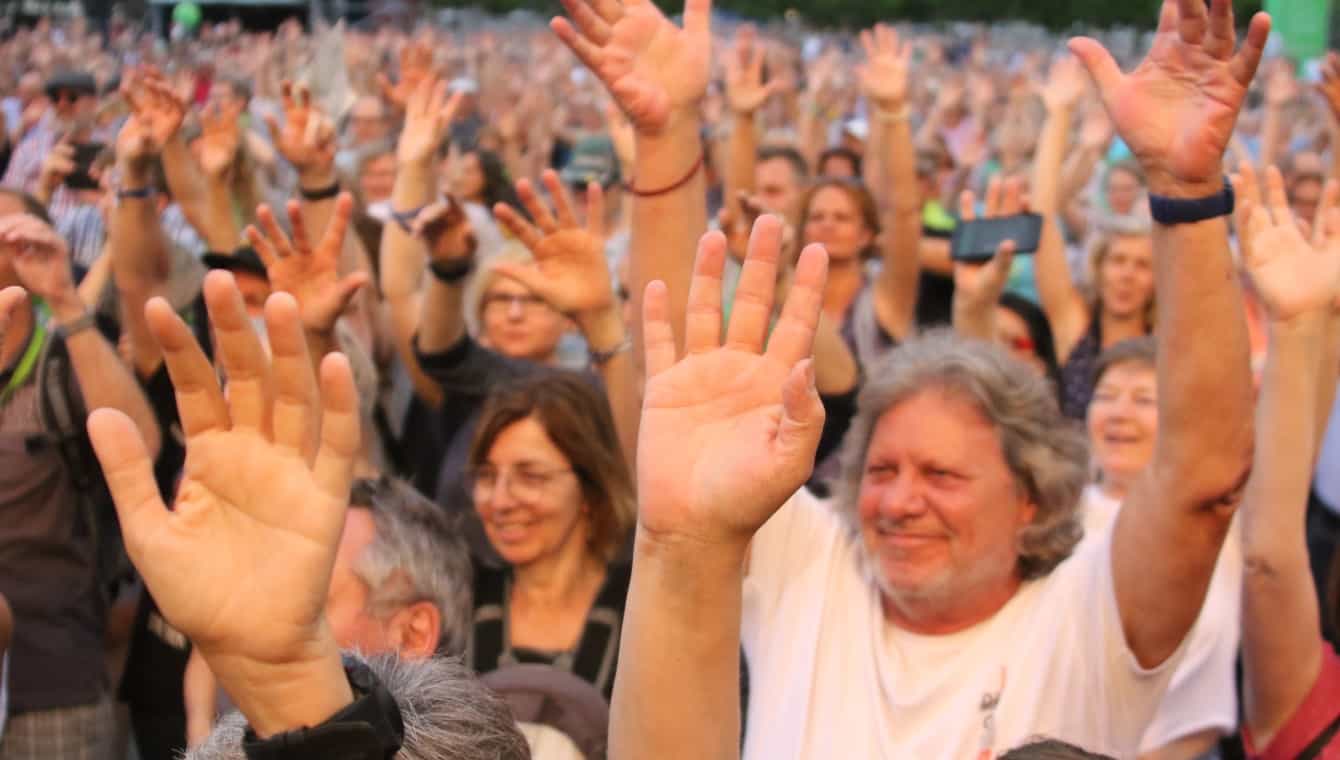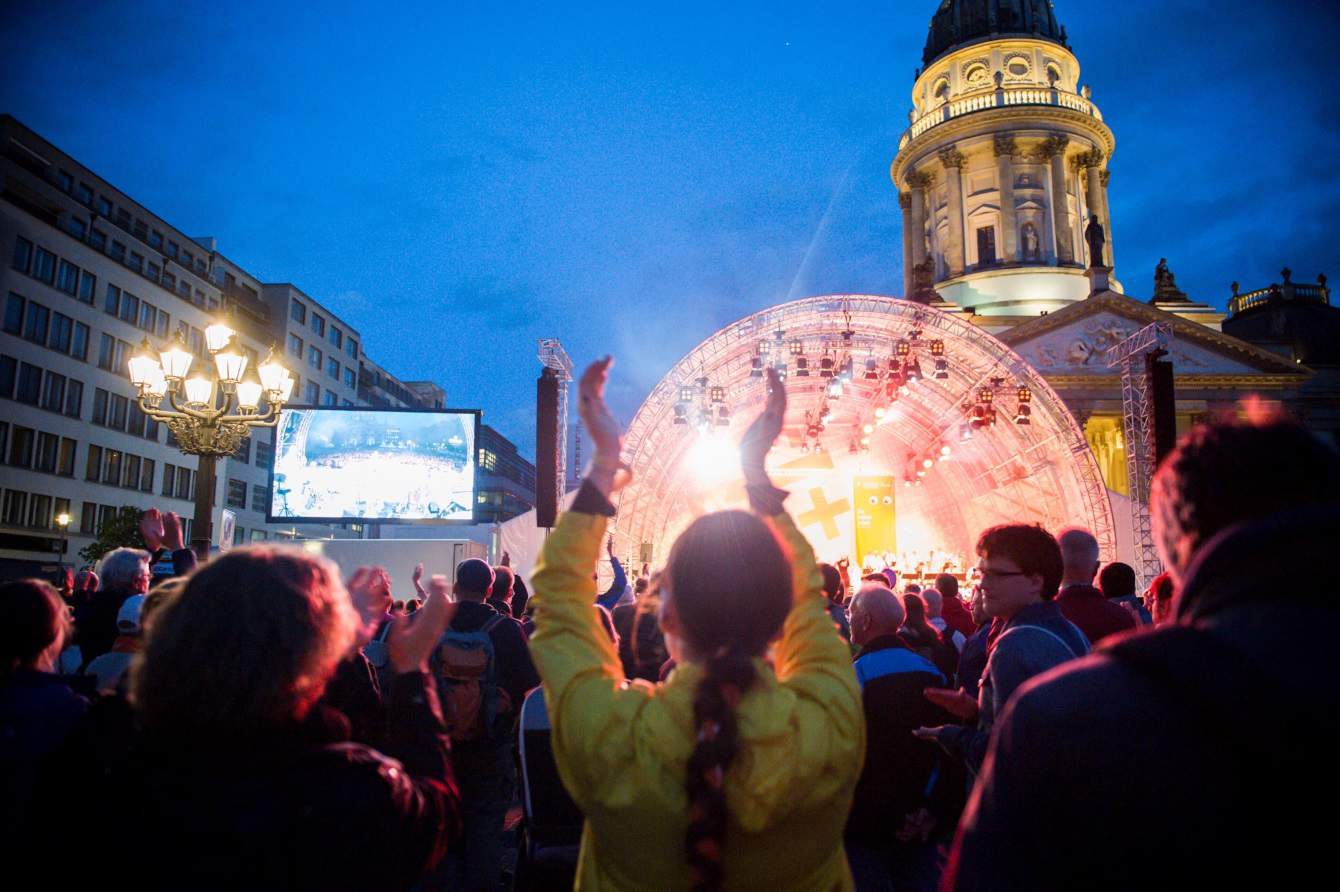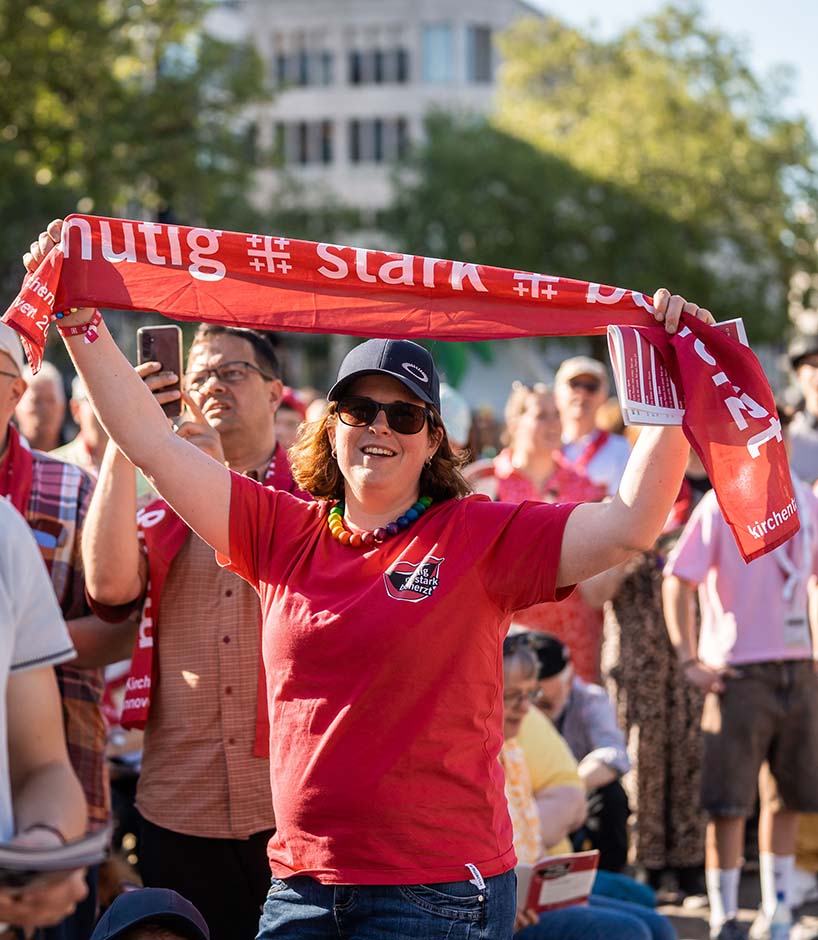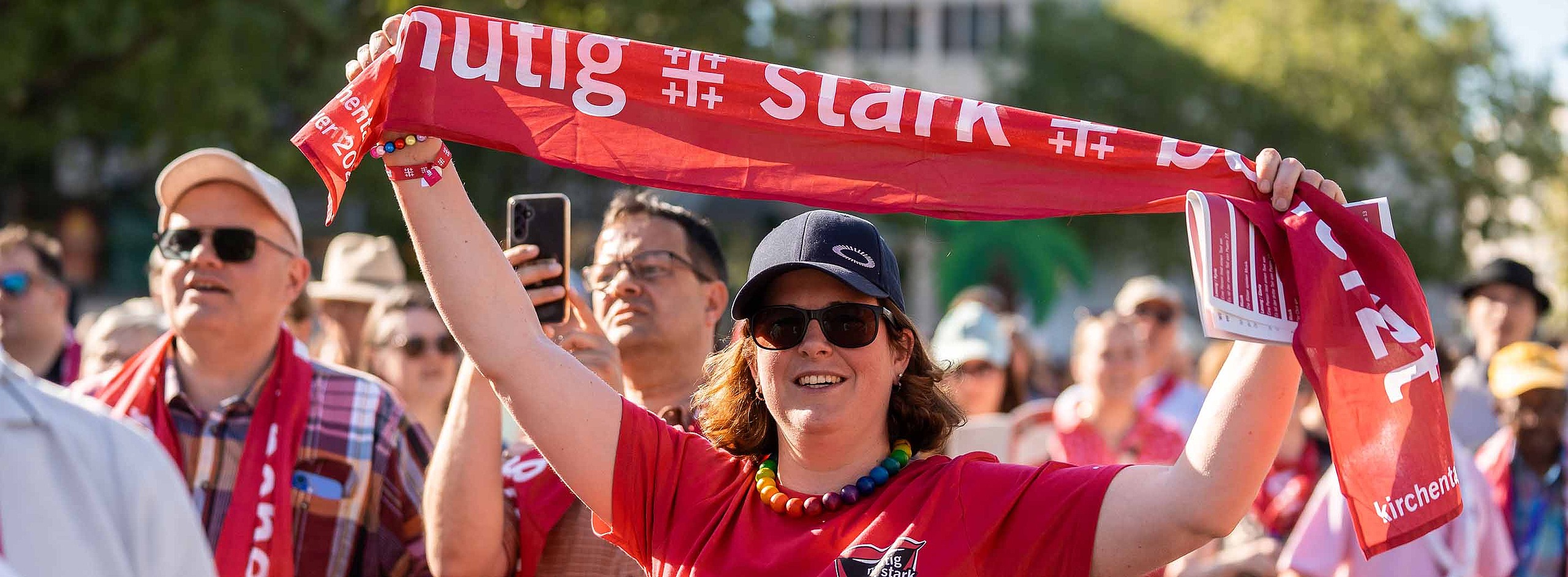Questions and answers
All you need to know
General questions
Who is behind the German Protestant Kirchentag?
The Kirchentag is not the established church, but an independent lay movement, a registered association: "Verein zur Förderung des Deutschen Evangelischen Kirchentages e.V." . The privately supported, non-profit association has its headquarters in Fulda.
Hundreds of full-time and voluntary workers then organize a church congress every two years in a larger city in Germany - with many creative offers, actions and events.
The host city and the regional church invite the Kirchentag to join them.
Who is the offer aimed at and how can I be part of the Kirchentag?
There are different ways to be part of the Kirchentag:
The Kirchentag stands for community and everyone is welcome to participate. Completely regardless of religion, world view, origin, age or other characteristics. Many people visit the Kirchentag not only to enjoy the varied program, they also actively contribute to the program. The Kirchentag lives from people who join in. Still other people get involved on a voluntary and hands-on basis as helpers. They contribute significantly to the success and the unique atmosphere of the Kirchentag.
How can people/communities/groups from the Düsseldorf region get involved?
Next to the "normal" participation and the nationwide participation opportunities, there are additional opportunities for people from the host region to participate. For example, people from Düsseldorf can invite people to a Celebratory community service, organize overnight accommodations, or present themselves at the Evening of Encounter. Join in - as a congregation, group or individual!
I would like to volunteer!
Great, we are very happy to have helpers from Düsseldorf and the region and all over world to make the Kirchentag possible together for everyone. If you are interested in helping at the Kirchentag (alone or with a group of peers), please send an email to helfen@kirchentag.de.
Can I get involved in the Kirchentag on a long-term basis?
Yes, absolutely! The Kirchentag sees itself as a movement. Kirchentag brings people together to strengthen their faith and exchange ideas about the issues of the day: How can we shape the world of tomorrow together? What contribution can we make as courageous Christians?
In the volunteer committees of the Kirchentag, people are often involved for several years, sometimes even decades. The youth committee represents young people's interests at the Kirchentag. It brings the concerns of young people into the program and the organization of the Kirchentag. International contact persons work together in the International Committee of the Kirchentag.
Support the Kirchentag by becoming a member of the "Freundeskreis Kirchentag e. V." (Link to german page).
How is the Kirchentag financed?
The Kirchentag essentially stands on three pillars financially: public sponsors (city, state and federal government) and the host regional church together finance around two-thirds of the total costs. The remainder is provided by the third pillar, admission fees, donations and sponsorships.
What if I have a need due to disability?
The Kirchentag aims to contribute to the responsible community of global Christianity and everyone at the Kirchentag is committed to ensuring that accessibility, inclusion and participation are not just empty words!
The Kirchentag takes the needs of people with disabilities into consideration when planning the venues and designing the programme. In principle, all events at the Kirchentag should be accessible.
If you have any questions about accessibility, please contact us for further information at international(at)kirchentag.de.
What is the benefit of the Kirchentag? How does the city benefit from the Kirchentag?
The Kirchentag strengthens cohesion and solidarity in our society through the high level of voluntary commitment and the breadth of the topics. They demonstrably and positively show how people from the most diverse social and geographical backgrounds can live together considerately and respectfully.
The Kirchentag is international, interreligious and ecumenical: about 5,000 guests from all over the world, from more than 100 countries around the globe enrich the Kirchentag and establish contacts in the city and the region.
The Kirchentag embodies principles of inclusivity, accessibility, and environmental stewardship. Notably, it became the first significant event to receive EMAS certification in 2007, maintaining this prestigious certification since and serving as a beacon of inspiration for numerous other large-scale gatherings.
Furthermore, the Kirchentag actively supports urban initiatives aimed at fostering community cohesion and promoting civic engagement. It highlights the substantial social contributions made by congregations and individual Christians within their communities.
With a considerable media presence, the Kirchentag garners widespread attention, generating over 15,000 online and print articles during its duration and enjoying coverage across major radio and television news programs.
Last but not least, many participants discover the region as a (future) vacation destination. More than 100,000 participants who come to a city for five days - and return - revitalize the cityscape, trade and gastronomy.
Why am I being asked to donate?
The German Protestant Kirchentag is an open and public event to which all people are invited, regardless of religion or origin. The Kirchentag is a non-profit organization that depends on donations and support.
Whether large or small, every amount helps! Please help maintain the participatory nature of this unique movement and event.
What does the Kirchentag do to combat sexualized discrimination and violence?
The protection and care concept of the Kirchentag includes strategies for the prevention of sexualized discrimination and violence.
At the German Protestant Kirchentag, all people should...
- be treated fairly. No one has the right to threaten or scare. No matter whether with looks, words, pictures or deeds. No one may be blackmailed, excluded, treated in a derogatory manner or beaten.
- decide for themselves when, where and by whom they are photographed or filmed.
- decide for themselves how close they come to someone, when, how and where. No one may be touched, massaged, caressed or kissed against their will. Or be pressured to do so with someone else.
- Have the right to say "NO" and fight back when someone hurts their feelings or those of others. Saying "NO" is valid with looks, words, or through body posture.
- not join in if something scares them, makes them feel icky, or makes them feel uncomfortable.
- Get support from others. If someone is uncomfortable or feeling bad, getting help is important!


